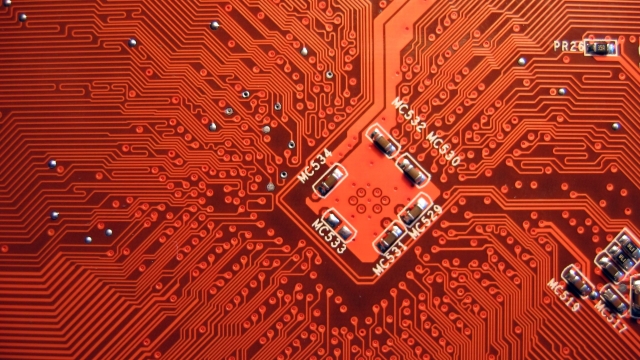
In our modern world, electronic components play a vital role in shaping the technology that surrounds us. From smartphones to cars, and everything in between, these intricate parts are the building blocks that power our daily lives. Electronic components are like puzzle pieces that come together to create the amazing devices we rely on for communication, entertainment, and so much more.
With each component serving a unique function, the world of electronics is a fascinating realm to explore. Whether it’s resistors regulating the flow of electricity or transistors amplifying signals, understanding how these components work together opens up a world of innovation and possibility. Join us as we delve deeper into the realm of electronic components and uncover the wonders that drive the technologies we can’t live without.
Types of Electronic Components
IGBT Module
When exploring the realm of electronic components, one fundamental category to consider is passive components. These elements do not require an external power source to function and include resistors, capacitors, and inductors. Passive components play a vital role in regulating, filtering, and storing electrical signals within a circuit.
Moving on to another significant group, active components are devices that can control the flow of electricity. Transistors, diodes, and integrated circuits fall into this category. Active components introduce intelligence to electronic systems by amplifying signals, switching circuits on and off, and performing various complex functions essential for modern technology.
Furthermore, electromechanical components bridge the gap between electrical and mechanical systems. Relays, switches, and connectors are examples of electromechanical components that convert electrical signals into mechanical movement or vice versa. These components are crucial for interfacing electronic circuits with physical devices and creating dynamic systems.
Importance of Electronic Components
In today’s fast-paced world, electronic components play a vital role in powering our daily lives. From smartphones to industrial machinery, these components form the building blocks of modern technology, enabling devices to function efficiently and reliably.
One key aspect of electronic components is their versatility. With a wide range of components available, engineers and designers have the flexibility to create innovative solutions for various applications. Whether it’s a simple resistor or a complex microcontroller, each component contributes to the overall functionality of a system.
Moreover, the reliability of electronic components is crucial for ensuring the smooth operation of electronic devices. By using high-quality components, manufacturers can enhance the performance and longevity of their products, providing users with a seamless experience. Ultimately, the importance of electronic components cannot be overlooked in the ever-evolving landscape of technology.
Future Developments in Electronic Components
In the ever-evolving field of electronic components, advancements continue to push the boundaries of technology. One key area of development lies in the miniaturization of components, enabling devices to become smaller, more efficient, and powerful.
Another exciting prospect is the integration of AI capabilities into electronic components, allowing for smarter and more autonomous devices. By harnessing the power of artificial intelligence, electronic components can adapt to user preferences, optimize performance, and even predict potential issues before they occur.
Furthermore, the future of electronic components is bright with the rise of flexible and wearable electronics. These components can bend, stretch, and conform to various shapes, opening up new possibilities for innovative products in areas such as healthcare, entertainment, and fashion.





